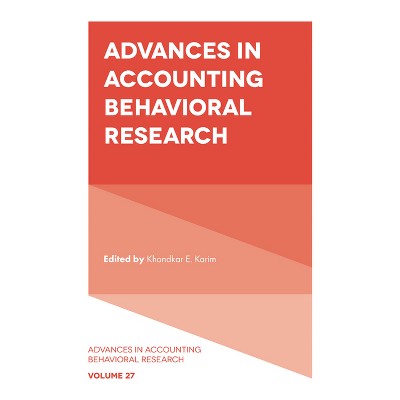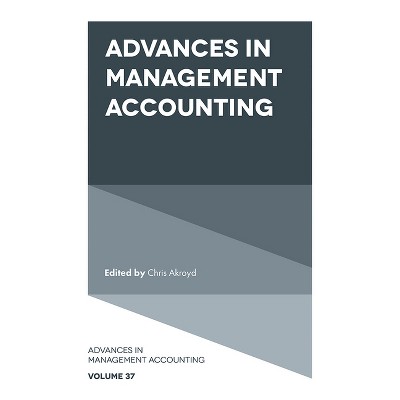Sponsored

Advances in Accounting Behavioral Research - by Khondkar E Karim (Hardcover)
In Stock
Sponsored
About this item
Highlights
- Focusing on research that examines both individual and organizational behavior relative to accounting, Advances in Accounting Behavioral Research provides an in-depth analysis and exchange of peer-reviewed knowledge across all areas of accounting behavioral research and the development, discussion, and expansion of theories from psychology, sociology, and related disciplines.
- About the Author: Dr. Khondkar E. Karim is a Professor of Accounting and Chair at Manning School of Business, University of Massachusetts, USA, and a Certified Public Accountant.
- 200 Pages
- Business + Money Management, Accounting
- Series Name: Advances in Accounting Behavioral Research
Description
About the Book
The theme of Volume 28 is emerging theory, methods, and applications towards behavioral research in accounting and audit. Chapters collected here examine topics ranging from CFO ethnicity and impact on financial reporting to career imprinting to safeguards in crowdfunding and more.
Book Synopsis
Focusing on research that examines both individual and organizational behavior relative to accounting, Advances in Accounting Behavioral Research provides an in-depth analysis and exchange of peer-reviewed knowledge across all areas of accounting behavioral research and the development, discussion, and expansion of theories from psychology, sociology, and related disciplines.
The theme of Volume 28 is emerging theory, methods, and applications towards behavioral research in accounting and audit. Chapters collected here examine topics ranging from CFO ethnicity and impact on financial reporting to career imprinting to safeguards in crowdfunding and more.
About the Author
Dr. Khondkar E. Karim is a Professor of Accounting and Chair at Manning School of Business, University of Massachusetts, USA, and a Certified Public Accountant. Karim's research interests are in financial accounting, market-based accounting, behavioral accounting, judgment decision making, content analysis, impact of regulatory changes on accounting numbers, audit pricing, audit quality, and cost management.
















